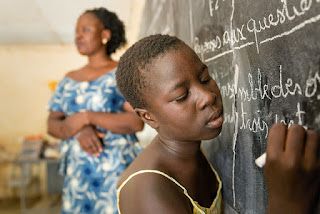Women and poverty
Since that women are disproportionately affected by poverty worldwide, women and poverty are intimately related. The United Nations estimates that 330 million women live on less than $1.90 a day, making them more likely than men to be poor.
Women are more prone to face poverty for a variety of reasons. First off, compared to men, women typically have lower levels of education and less economic possibilities, which can have an impact on their ability to earn money and help them overcome poverty. This is especially true in underdeveloped nations where women frequently experience discriminatory societal norms and don't have access to resources like loans, land, and technology.
Women are also more likely to work in low-paying, ad hoc jobs like domestic labor, farming, and clothing manufacture, which frequently lack job stability, benefits, and protections like minimum wage regulations. Women may find it more difficult to provide for their family as a result, and they may also be more susceptible to economic shocks like pandemics, recessions, and natural catastrophes.
Even more at risk of poverty are women who are also stigmatized because of traits like color, ethnicity, religion, handicap, or sexual orientation. Women who are indigenous, disabled, or LGBTQ+ may experience additional challenges to work, healthcare, and education, which can exacerbate their poverty.
The impact of poverty on women is significant and can have long-lasting effects. Women living in poverty are more likely to experience poor health, malnutrition, and maternal mortality, as well as have limited access to education and economic opportunities. They may also be more vulnerable to violence and exploitation, including trafficking and forced labor.
In conclusion, women and poverty are linked, with women around the world being disproportionately affected by poverty. The root causes of gender inequality and discrimination must be addressed in order to address this problem, and policies that assist the economic and social empowerment of women must be supported.
To address the issue of women and poverty, it is essential to address the underlying social and economic factors that contribute to gender inequality and discrimination. This can include policies that promote equal access to education, healthcare, and economic opportunities for women, as well as measures that combat discrimination and gender-based violence.




Comments
Post a Comment